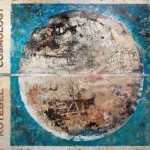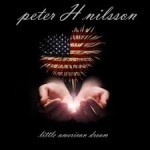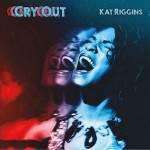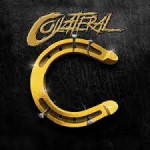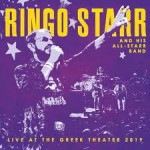Share the post "10 Q’s with John Sinclair (OZZY/URIAH HEEP)"
John Sinclair has played keyboards for Uriah Heep, Ozzy Osbourne, the Cult and more. He now spends his time running music workshops, private therapy sessions and online counseling. Find out more at his website
1. What are you currently up to?
I started formal piano training in 1958 {when I was five} and in those days the emphasis was on music theory with a view to being a classical pianist. By age 12 I’d given up on grades and learning to read music and was in a band. The classical thing obviously stuck with me as the biggest influences I had were The Nice, Yes, King Crimson and prog rock in general. This turned into a love for musical theatre so in short, I’m still working on my lifelong dream of writing a hit musical. I’m probably the oldest young hopeful in the business!!
Obviously this doesn’t pay the bills, so workwise most of my time now is spent between music workshops, private therapy sessions and online counseling. Just had my first book published, called “How to get along with everybody”. I didn’t write it alone, I co-wrote it with this twat that actually I can’t stand! {just kidding!}.
2. How did you become involved in hypnotherapy and being a motivational coach?
I was never a confident person, having had a very unsettled childhood but developed a fairly good reputation as a musician quite young. Of course this led to facing bigger and bigger crowds, and just being in the rock music business almost grants a “license” to reach dangerous levels of drink and drug use, in other words it came with the territory {this has likely changed sinced the 70’s}. It is like a bubble outside of normality, I mean if you’re a member of parliament it’s probably not considered appropriate behaviour to snort ants but in the rock n’ roll scene {in those days anyway} such behaviour went relatively unnoticed.
This bubble was obviously dangerous to someone with my issues, and I graduated fairly naturally to compulsive alcohol use. Hypnotherapy and Cognitive Behavioural Therapy were very instrumental in my finally resolving the dangerous beliefs I had that drove this compulsion, so when I retired from the music business it was natural that I would go on to train in these areas, having experienced the benefits first hand.
Looking back on it, I suppose my drinking wasn’t too bad. I only drank if I was alone {or with anybody}…. {laughs}.
3. You have also been heavily involved in helping youngsters through Motivation Through Music. How does this work and do you follow up on youngsters you have worked with to see how they are getting on?
Most of us love music of one type or another, be it Frank Sinatra or Black Sabbath. So it is a great motivational platform, and it goes without saying that some people are born into worse situations than others. I have heard it said in various models of therapy that “you can’t change the hand you’ve been dealt, but you can change your perception of it”, and it was from this that I formulated the idea of using music as a platform to help youngsters who are particularly disadvantaged, whether young offenders, kids with alcohol or drug problems, restricted by being required to be a young carer, or in care themselves. There is no training program and it is not a “music lesson” {unless that is what is requested of me}, it is all about the needs of the individual. Although this is part of what pays the bills in my “autumn years”, of course the real payoff is keeping in touch and hearing that I’ve helped youngsters shift their restricting perceptions. In 2003 when I quit the business, being a professional therapist was not my first choice however, I formed two boy bands “Pastlife” and “Deadzone”. Neither took off! {laughs}
4. What was the highlight of your days touring and recording with Ozzy? What was it like writing and recording with Ozzy? Were recordings done as a band playing together or did each musician come in and record their parts separately?
Ozzy is obviously an iconic name in the business. So I suppose anyone who gets a chance to work alongside him is blessed. A short answer is that the whole experience {comprising the best part of 17 years} was great fun. By now, everybody is familiar with what a character he is, so this answer is likely no surprise to anyone.
South America was a blast in the early 90’s. I wouldn’t like to guess at numbers, but certainly some of the biggest crowds I’ve ever seen.
The recording process varied according to the track. I’m sure most bands adopt the approach that you record the track, keep what you can to retain as much of the “live feel” as possible, then overdub the parts that may need more of a “microscopic” approach in terms of sound/feel etc.
5. You played keyboards on the ‘This Is Spinal Tap’ album. Having seen the film did you see bits of the film and think that may have been based on real life events from certain bands? Did you play live with Spinal Tap or was it just on the album?
I actually appeared in the pilot for the movie but could not commit to the final production as “Head First” was about to be released and Uriah Heep were going on tour to promote it.
I know for a fact that the U.S airforce base scene was based on a story I related to Christopher Guest about a gig I did with Uriah Heep.
Bearing in mind Heep were themselves in the position of trying to regain the popularity of the early 70’s, we took any gigs that came our way to simply pay the bills. Allowing for a certain element of artistic license {i.e we did not have taxicabs coming through our cordless guitar systems} the scene pretty much captured the pain of playing to a bunch of U.S airmen in uniform with their wives in evening dress. And we died! The source of this scene is documented on the Spinal Tap website. I believe Bob Daisley kept the poster which announced “The Uriah Heep Show, 50 million records sold, 2nd only to Abba in popularity”. Only played live once with Spinal Tap at The Albert Hall in London, when they asked me to come up and play “Heavy Duty”.
It was totally unexpected, was years after the recordings and couldn’t even remember what key it was in. Had a quick rehearsal but probably didn’t help much! {laughs}.
6. The three Uriah Heep albums with Pete Goalby are amongst the band’s best in my humble opinion. Why do you think they didn’t have bigger sales and bring the band back into the limelight? Did you leave the band or had they split-up by 1985? (I remember seeing the band in 1986 at a small club in Stoke with the then new vocalist Bernie Shaw).
I really don’t know why they didn’t put the Heep back on the map. Sometimes I wonder if our diversion from the sound of the original Uriah Heep created confusion and we would have been better off to change the name, thereby detaching ourselves from comparisons.
Of course that would presented bigger problems as the name Uriah Heep still carried weight as they had been a great and successful band, so we needed that credibility to get noticed. Still proud of those albums though, particularly “Abominog” and “Head First”. Pete Goalby and I left roughly around the same time. Speaking for myself, certainly not out of personal or “musical differences” but just from being burned out and basically disappointed that my best efforts had not amounted to much. Great though to see that this present line up has enjoyed greater longevity than any previous, and that they’re still out there doing it.
7. How did you become involved in producing the young band Estrella? Has working with them perhaps have you wanting to play live again or are you happy to stay studio bound?
I met the Estrella boys years ago when they visited a Rock School workshop I was doing in Thurso, Scotland. They were a fairly established band locally and came down and did the show with the local kids and established themselves firmly in my heart as a great bunch of guys. I was only recently retired from the road and had no intention of getting back into the business on any level so did not initially take them up on their request to work with them. As the years went by we kept in touch and I suppose I started to get an itch to “salute the spirit of rock” {cue Jack Black image} and they asked me again and I agreed. I know the 80’s gets an almighty amount of flak, but I’m nearly 60 and like it or not I still view the period as spawning some great rock music. Bands like Van Halen and Aerosmith had great playing, great songs and most importantly their vibe was POSITIVE. So I’d personally rather hear a song like “Jump” than a song about lithium.
And these guys shared that outlook, did gigs for cancer research charities and were keen to develop the idea of recreating the days when rock music was FUN. With them it’s not a parody {i.e. The Darkness} or a marketing ploy. They live it and breathe it.
So we got down to the styling of the band, then of course the writing and recording. I’m quite happy in the background with no desire to play live anymore.
8. If you could go back in time and perhaps change one career decision what would it be and why?
Not really a career move, but one regret is never having learned to read music. It was never really a problem in terms of rock music {I think I only ever saw dots on the rare occasions my work was orchestrated} but in later years {especially in terms of writing musical theatre} I’ve come to appreciate the value of being able to read in terms of complex scores. Thank heavens for midi is all I can say about that!
9. Any good rock ‘n’ roll tales to tell…
OK…. I believe it was Reading Festival. I only remember the events that took place, but am not sure of the exact year or even {believe it or not} the band I was with. It’s in front of about 40,000 people and I am alone on stage doing my solo keyboard spot, covered in black leather, looking gorgeous, fan wafting my long silver hair and playing the biggest pile of pseudo-classical bullshit that you’ve ever heard in your life. Suddenly I’m transported into a scene from “Independence Day” whereby a huge white globe enters my peripheral vision from the left. This turns out to be a cabbage, unfortunately not of the leafy green variety but a solid white mass somewhat akin to a bowling ball. This cracks me on the side of the head so hard that I am knocked straight off the riser and for a few seconds am unconscious on the stage. Members of the crew duly place me back on the riser and I am faced with silence and an imaginary tumbleweed which rolls lazily across the stage. I have to say something. Which turns out to be “that was a great shot”. And in retrospect, it WAS a great shot. I mean, this guy had obviously set out to nail a keyboard player and presumably he only had one cabbage and therefore one shot, and he nailed me in one. I still have a mental picture of him coming through the turnstile on the way in, suitably armed with his cabbage. Perhaps this could only happen in the UK, but along with John Lennon and Tommy Cooper he remains one of the people I’d most like to have met.
10. Of the albums you guested on (HMK, Cozy Powell etc) which did you enjoy the most and why? Do you have much say as a session musician in the music or is a case of play the notes you are given!
I did not actually “guest” with either Heavy Metal Kids or Cozy Powell. I was a member of the HMKs and Cozy Powell used recordings I was involved in long after they were originally made, so I actually never met Cozy. When I was about 20 I recorded an album with Status Quo, not a Quo album as such, but for another artist on Phonogram records. Loads of fun working with them though.
Most of the sessions in which I was involved in go back to the time when I lived in LA for around 10 years {Jefferson Starship, Eddie Money, The Babies etc}. Of course I could never “play the notes I was given”, not being able to read music. In this sense, I would likely be brought in because I would have a say in the music, in other words I had the reputation of getting results by saying “put the track on and I’ll see what I can do”. So I would have been useless in say, a BBC session where you are given the part and you perform it perfectly, resulting in the minimum cost in terms of studio time. I suppose the very best session players can do either, but that was my experience.
Anything else to add and a message for your fans…
My years in the business have taught me to adopt the attitude that nobody actually gives a s**t what you’re writing or what your band is doing. This may or may not be true, but this adopted belief cements an inbuilt attitude that to be noticed you MUST stand out. In real terms, it forces you to be able to stand outside of, and be objective about, what you are presenting and sever all personal ties with it. This serves to {at least} strive for excellence. In short, is your music “accessible” to the masses? Or do they have to work hard to “get it”?
Most people are not musicians, and simply are not interested in much of what musicians strive towards. This is perhaps especially true in the case of being a keyboard player in rock music, which is essentially ruled by vocals, guitar, bass and drums. Rock fans simply do not play “air keyboards”.
I still receive good wishes and appreciation from all over the world, and it is great to know that my efforts resonated with people, so thank you all so much. I’m proud of what I did over the years and have just started yet ANOTHER musical. You could reasonably say that I’m nearly 60, isn’t it about time that I gave up the idea? On the other hand, why would I give up now? I’ve never had this much experience in my life. So I will get there…. But in the meantime, check out Estrella! {laughs}.
Featured Artist: JOSH TAERK
Since early 2020 Josh has been entertaining us with exclusive monthly live sessions,
Check out videos here: https://www.facebook.com/getreadytorockradio
Upcoming sessions:
February 15
March 8
April 12
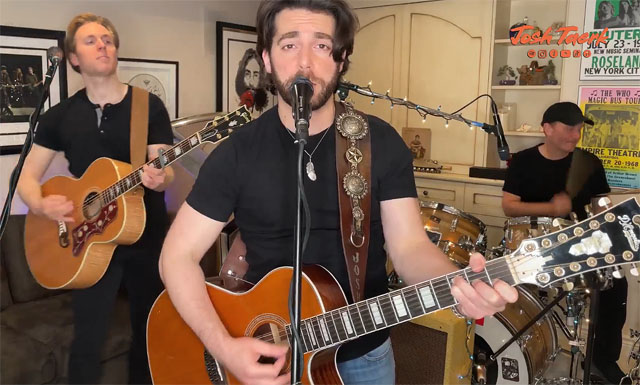
David Randall presents a weekly show on Get Ready to ROCK! Radio, Sundays at 22:00 GMT, repeated on Mondays and Fridays), when he invites listeners to ‘Assume The Position’. The show signposts forthcoming gigs and tours and latest additions at getreadytorock.com. This “Best of 2025 reviewer choices” show was first broadcast on 21 December 2025.
UK Blues Broadcaster of the Year (2020 and 2021 Finalist) Pete Feenstra presents his weekly Rock & Blues Show on Tuesday at 19:00 GMT as part of a five hour blues rock marathon “Tuesday is Bluesday at GRTR!”. The show is repeated on Wednesdays at 22:00, Fridays at 20:00). Pete’s Best of 2025 was first broadcast on 23 December 2025
How to Listen Live?
Click the programming image at the top of the page (top right of page if using desktop)
Get Ready to ROCK! Radio is also in iTunes under Internet Radio/Classic Rock
Listen in via the Tunein app and search for “Get Ready to ROCK!” and save as favourite.
More information and links at our radio website where you can listen live or listen again to shows via the presenter pages: getreadytorockradio.com
Power Plays w/c 26 January 2026
JOANNE SHAW TAYLOR Hell Or High Water (Journeyman Records)
TY FREEMAN One Way Love (indie)
GREY DAZE Monster You Adore (indie)
HOKKA Death By Cupids Arrow (Nuclear Blast Records)
PURPLE DOTS Stared At The Sun (Kycker)
SAINT AGNES Song For Mia (Spinefarm)
STREETLIGHT Shake That Feeling (Frontiers)
Featured Albums w/c 26 January 2026
09:00-12:00 The Best of 2003 – 2025 (Melodic Rock)
12:00-13:00 The Best of 2003 – 2025 (Melodic Hard Rock)
14:00-16:00 The Best of 2003 – 2025 (Singer Songwriter)
Our occasional Newsletter signposts latest additions to the website(s). We also include a selection of recent top albums, based on GRTR! reviewer ratings. The newsletter is sent out a few times a year.
If you’d like to register to receive this occasional mailing please complete the form:
If using a smartphone/tablet please tap here or re-orientate your device
(Note that this registration is separate from site registration which allows you to leave comments and receive daily emails about new content. If you wish to register for this – in addition or separately – please click or tap here – for more information – the form is at the foot of each page. Please read our privacy policy when opting-in to receive emails.
Recent (last 30 days)
Share the post "10 Q’s with John Sinclair (OZZY/URIAH HEEP)"

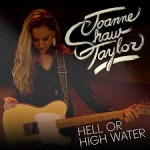
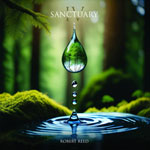
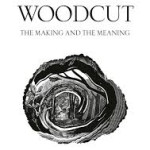
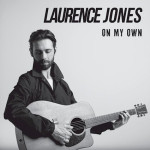
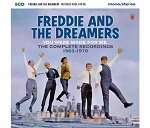
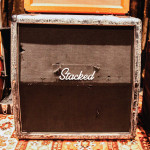
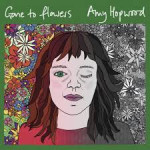
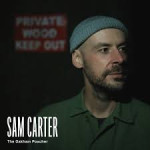
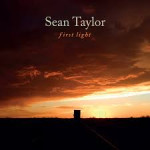
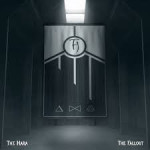
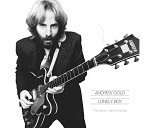
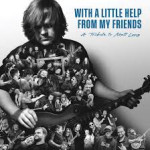

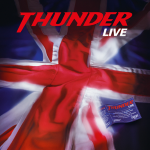
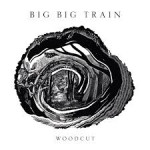
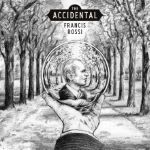
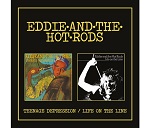
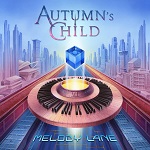
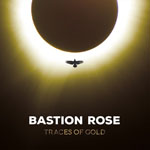
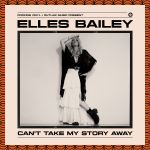
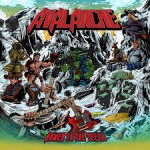
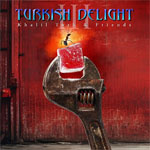

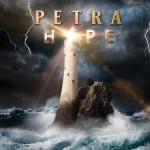

 PDF - you can delete unwanted sections
PDF - you can delete unwanted sections

















